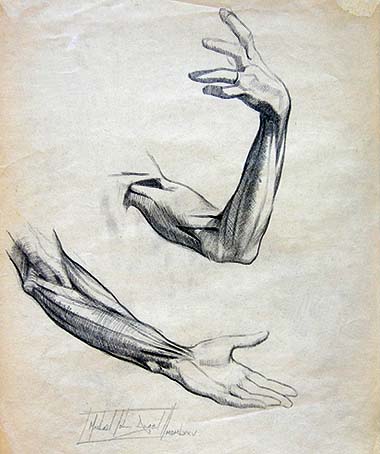These three poems by Francis Fernandes are the accidental outcome of aimless reflection, doggedness, and time. And so that’s what they happen to be about, too. Looking deep enough into the past and present, and into the fascinating harmonic interplay of human relationships, one is bound to make all sorts of weird and wonderful discoveries. Life is like an old movie you come back to again and again: you see things differently all the time. What we can never see, though, is the BIG picture and so, like Hamlet – and all the jazz greats – say, “The readiness is all!”

by: Francis Fernandes
Fleeting My heart is heavy since my mother told me they sold the ballpark to speculators. That’s where I got my only ever extra-base hit. The timeless diamond scuffing my shoes, filling my uniform with the scent of earth. The outfielder took his sweet old time with my soft seeing-eye grounder, and I stretched a single into a double. The way you might slip a pack of M&M’s into your pocket as the clerk serves a customer, or ducks under the counter for that fleeting second. Slid head-first. What did I know? That’s how they did it in the majors. I actually remembered to call time before dusting myself off. It was my moment. My mother hears about these things from a friend of a friend. Neither of us lives there anymore. She needs her special care, in her special home. One day I’ll need mine, too, I guess. Maybe it isn’t true – about the ballpark and the speculators. She says one thing, and then the next day she doesn’t remember. I’m lucky if she can hear me. I call her up once a week. I’m selling my time half-way around the planet, in a world that has no clue about baseball. Sometimes I don’t know what I’m doing here. It could be that story about the ballpark is just a figment of her fragile mind. Still, I can’t help it, I’m all choked up. I see them hauling away the rickety stands like yesterday’s junk. Cracked wood and rusty steel. Like an antique wardrobe from the attic no one visits anymore. I thought monuments lasted forever. I thought she’d always be there. It hits me now. Like a line-drive to my industrious head. She is the door to those hallowed scenes. She took me to those games, always cheered me on. She was my biggest fan.
Holiday A crisis is ugly, but like a virus it doesn’t know that. It just tries to spread some soul – its raison d’être – the only way it knows: by getting inside you. I thought she loved my Tourette’s. Just like I miss her OCD. It’s both heart-wrenching and heartwarming at the same time to know all parts have their special place. When things change, you start to doubt your own worth. She’s gone to her parents because of my crazy foot-tapping and the fact the cat won’t answer her pleas (with actual words). The Finals this year are the Lightning and the Avalanche. That only seems fitting, if you ask me. Calamity foretold. No, I won’t watch now that she’s not here. Or maybe I will. I’m not sure. If you asked me to pick between hockey and jazz, the first sticks I’d reach for are the drumsticks. I love the game, but I need the music. Power-plays and odd-man rushes might well have their own rhythm; and a perfectly-timed hip-check can be as startling and lovely as a C major to E-flat minor key change. This is true. But the beat of jazz has lived inside all of us since time immemorial – even before we knew what a crisis was. When the firm decided to target our lot (sadly, we can’t keep everyone; orders from the top), I didn’t panic. I was tired of the media hype and the way we drank it all up, like the bloody fascination for a road accident. Like a film within a film. Hadn’t this whole distancing charade lasted long enough, though? All this washing our hands of our odious deeds. Because, really, this is how it should be (at least it’s how I see it): We’re at the Village Vanguard, say – or maybe the Jazzhus Montmartre in Copenhagen, where Dexter Gordon, Art Blakey, and all those soldiers of mercy once played. It doesn’t matter. Wherever. But there I’d sit, with a cold glass in one hand, without even drinking it, close enough to see the sweat rolling down the drummer’s temples (the other side of those hallowed halls where all those eight-beat rhythms and other miracles are born). You can’t see the sticks, though, they’re moving so fast. All the while the double-bass is listing to port, to starboard, then back again, like a thumping sail buffeted by furious ocean winds. And the piano is banging out glittering notes like the hot stars above our heads – high above our walls and moods and badly-tempered claviers. Our tiny disputed territories and borders. (Our vast personal hellholes!) And here’s the thing: they’d be playing Free for All or: Stella by Starlight or: It Never Entered My Mind or even: I Fall in Love Too Easily – something in any case from the days when we still listened. And, yes, she’d be there with me. She’d be there – and with the hand that’s not holding the drink, I’d reach for her hand under the table and together we’d feel something and remember all the times we left the door open and the music really came through. And everything was where it should be.
Improv on a Theme I’m thinking of The Wild Bunch and how, for most of the film, Thornton, deputized by the railroad to stop his former partners in crime, stays hot on their heels. I’m thinking of the scene where Pike and Dutch, the two ex-partners, are discussing the matter: What would you do in his place? Pike says. He gave his word. Dutch sneers back: Gave his word to a railroad. Pike blazes up: It’s his word! Dutch yells back: That ain’t what counts! It’s who you give it to! I can’t focus on the chord changes, and John, the bassist, is giving me some side-looks. I’m a fraction of a second behind. Marty, our drummer, keeps me honest with his snare. He has a way to direct sudden blaring strikes right into my ear. They know I’m fumbling my way through the piece. They know it’s her I’m thinking about. The audience, though, doesn’t seem any wiser. John is the mastermind behind our trio. He comes to the rehearsals with the chord charts and his brilliant ideas. Marty and I follow his lead. The fact is, she’s back in the picture and now she wants to be friends. I’m not sure that’s possible. I’m confused about how she can know for sure – even after a ten-year hiatus – that things are over. It still troubles me that she left town for a better job. John and Marty are like brothers and I tell them everything. They prefer not to give too much advice. They just listen. Unless of course I were to take her up on the offer and go see her. I might miss a gig or two. You somehow come to the point where you think life can pick up where it left off. Marty knows that’s foolish and the glint in his eye after one of his sly bashes tells me so. John adds an extra chorus to his solo before handing me the bridge. To show them I’ve caught up, I noodle around the principle key change and throw in something they don’t know. John raises an eyebrow. It’s my own pride that keeps me stuck in the past. I know this, and yet I do nothing about it. We play on, gig after gig. We eke a meagre living out of these shows. The people sitting at the tables appreciate us. We can feel it in their honest response. The reason they come to see us is our explosive style – that, and John’s ingenious transcriptions of the classics. It was difficult in the time of the plague (the way Marty refers to it). But we helped each other out and got through it more or less unscathed. Back then, she knew I was about to propose. And she knows I’m still serious. But she insists we respect each other’s past decisions. Meaning hers, I guess. She says she would accept my still hanging on after such a long time. That’s the word she used. The train left the station all those years ago and I ran after it and managed to leap and I’m still hanging on. And she accepts that. And what does that do for her today, I wonder, us being friends and everything? It’s as if Marty has read my mind: he’s going for the brushes in his solo. John is a bit surprised, too. I sit back and watch him. The toms sound like tall pines swaying in the Black Forest, and the cymbals like distant Zen chimes. I ask myself how you can do that. Put something behind you and not waste time doubting. Question all your past actions and where does that leave you? In the case of The Wild Bunch: dead, I guess. Except for Thornton, of course, who just rides off at the end to join the revolution. The question, then, is this: How to keep up with the times? Or simply keep time, as John would have it. He glances at me, then nods and grins. I can tell he’s not quite sure if I’ll end up doing justice to this piece.
Francis Fernandes grew up in the US and Canada. He studied in Montréal and has a degree in Mathematics. Since spring 2020, his writing has appeared in over twenty literary journals, including Modern Poetry Quarterly Review, Defenestration Magazine, Saint Katherine Review, Amethyst Review, Front Porch Journal. He lives in Frankfurt, Germany, where he writes and teaches.






That’s a poet who knows my jazz heart. It is simply too great a story to put down, the ins and the outs of a musician/poet and the love and the music and the love and the music that is meant to call to women to approach and give us love. Nice, nice….the brushes tap the cymbals gently at the end of the song. B flat minor, like Coltrane’s Naima.